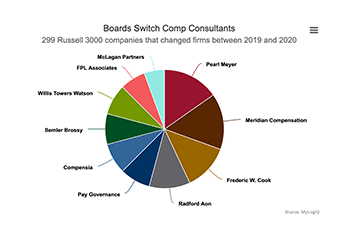Boards are formalizing the approaches they take in evaluating and assessing the performance of independent chairs and lead directors, at times even decoupling succession planning for the role from CEO transitions as governance processes and structures evolve.
Boards traditionally have looked to the director with the longest tenure who is also a former CEO to wear the mantle of independent chair or lead director, with a CEO transition serving as the fulcrum around which the governance structure might shift, depending on the circumstances. However, forward-looking boards are contemplating — typically as part of a board evaluation process or an executive development deep dive — whether the board has directors who have the skills needed to complement a potential new CEO as the chair or lead director. They are also determining if board recruitment might be needed in certain cases and whether the current relationship dynamic between the sitting CEO and current board leader is enhancing the CEO and company’s performance.
Vinod Khilnani, former CEO and chairman of CTS Corp. who now chairs the board of Materion Corporation, points out that the knowledge, experience and maturity of the person in the lead director or board chair role are equally as important as the style and soft side of the person.
…Similarily, a review of 2020 filings by public company intelligence provider MyLogIQ found that 196 S&P 500 companies currently have non-executive chairs, with an average tenure of six years in the role.

